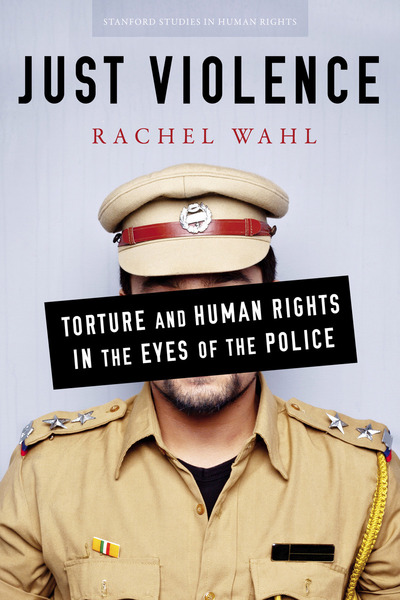
2017
264 pages.
from $28.00
Hardcover ISBN: 9780804794718
Paperback ISBN: 9781503601017
Ebook ISBN: 9781503601024
Police who engage in torture are condemned by human rights activists, the media, and people across the world who shudder at their brutality. Stark revelations about torture by American forces at places like Guantanamo Bay have stoked a fascination with torture and debates about human rights. Yet despite this interest, the public knows little about the officers who actually commit such violence. How do the police understand what they do? How do their beliefs inform their responses to education and activism against torture?
Just Violence reveals the moral perspective of perpetrators and how they respond to human rights efforts. Through interviews with law enforcers in India, Rachel Wahl uncovers the beliefs that motivate officers who use and support torture, and how these beliefs shape their responses to international human rights norms. Although on the surface Indian officers' subversion of human rights may seem to be a case of "local culture" resisting global norms, officers see human rights as in keeping with their religious and cultural traditions—and view Western countries as the primary human rights violators. However, the police do not condemn the United States for violations; on the contrary, for Indian police, Guantanamo Bay justifies torture in New Delhi. This book follows the attempts of human rights workers to both persuade and coerce officers into compliance. As Wahl explains, current human rights strategies can undermine each other, leaving the movement with complex dilemmas regarding whether to work with or against perpetrators.
About the author
Rachel Wahl is Assistant Professor in the Department of Leadership, Foundations, and Policy at the University of Virginia.
"In this compelling book, Rachel Wahl shows how Indian police with human rights training justify torture as a means to protect the rights of victims and the community. Just Violence will resonate widely with academics and practitioners who want to better understand how local cultures vernacularize ideas about human rights."
—Jack Snyder, Columbia University
"Why does human rights training fail to diminish the use of torture by police? Rachel Wahl's fascinating book argues that police torture is not simply the product of indifference or the legacy of colonial rule but also the moral compass of police themselves as they endeavor to produce security, justice, and order. Just Violence offers an alternative explanation of police violence and the misfit between local conceptions of justice and the general principles of the human rights system. This provocative book offers new insights into human rights education and the enduring tensions between rights and security."
—Sally Engle Merry, New York University